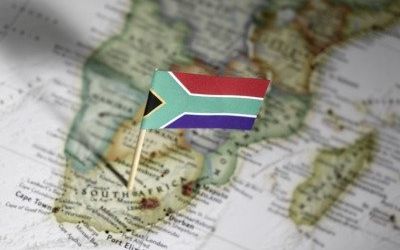AUBREY Matshiqi concludes that "we must look for the real reason why we are in a crisis" (Blaming others for our afflictions all too easy, March 8).
The three main political parties focus on processes they believe will solve the crisis — a national democratic revolution, liberalism and retribution. Nobody is describing the end-goal except the Freedom Charter: "SA belongs to all who live in it".
But what does "belongs to" mean? There are two possible interpretations: ownership flowing through the state, and widespread individual ownership. Both require redistribution.
Here is a vision of a society founded on private ownership achieved through redistribution: home ownership is the norm; children grow up in a secure home and attend a quality neighbourhood preschool; every child knows she/he will be able to acquire an employable qualification; most factory, farm and office workers are shareholders in their companies as a result of share options; the pension fund movement expands ownership of SA’s productive resources; all employees in the formal sector are covered by medical insurance; big business promotes small businesses; rural co-operatives farm communal land; and poverty is addressed by the state and a tax regime that encourages giving.
This obviously sounds utopian. Not so. A political strategy that commits to promoting economic growth and widespread ownership, is business-and worker-friendly, understands the damage done to blacks by our past and, in consequence, implements redistribution through the tax regime and budget priorities, could transform this society. The real reason we are in a crisis is that most South Africans have no stake in their own country.
Sam van Coller
Via e-mail

Picture: SUPPLIED
AUBREY Matshiqi concludes that "we must look for the real reason why we are in a crisis" (Blaming others for our afflictions all too easy, March 8).
The three main political parties focus on processes they believe will solve the crisis — a national democratic revolution, liberalism and retribution. Nobody is describing the end-goal except the Freedom Charter: "SA belongs to all who live in it".
But what does "belongs to" mean? There are two possible interpretations: ownership flowing through the state, and widespread individual ownership. Both require redistribution.
Here is a vision of a society founded on private ownership achieved through redistribution: home ownership is the norm; children grow up in a secure home and attend a quality neighbourhood preschool; every child knows she/he will be able to acquire an employable qualification; most factory, farm and office workers are shareholders in their companies as a result of share options; the pension fund movement expands ownership of SA’s productive resources; all employees in the formal sector are covered by medical insurance; big business promotes small businesses; rural co-operatives farm communal land; and poverty is addressed by the state and a tax regime that encourages giving.
This obviously sounds utopian. Not so. A political strategy that commits to promoting economic growth and widespread ownership, is business-and worker-friendly, understands the damage done to blacks by our past and, in consequence, implements redistribution through the tax regime and budget priorities, could transform this society. The real reason we are in a crisis is that most South Africans have no stake in their own country.
Sam van Coller
Via e-mail




















Change: 0.83%
Change: 0.93%
Change: 0.95%
Change: 0.73%
Change: 1.91%
Data supplied by Profile Data
Change: 0.58%
Change: 0.43%
Change: 0.83%
Change: 0.00%
Change: 0.56%
Data supplied by Profile Data
Change: -1.61%
Change: -0.95%
Change: -0.70%
Change: -1.21%
Change: -0.59%
Data supplied by Profile Data
Change: 2.54%
Change: 2.09%
Change: 2.30%
Change: 2.29%
Change: 3.41%
Data supplied by Profile Data